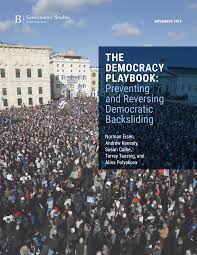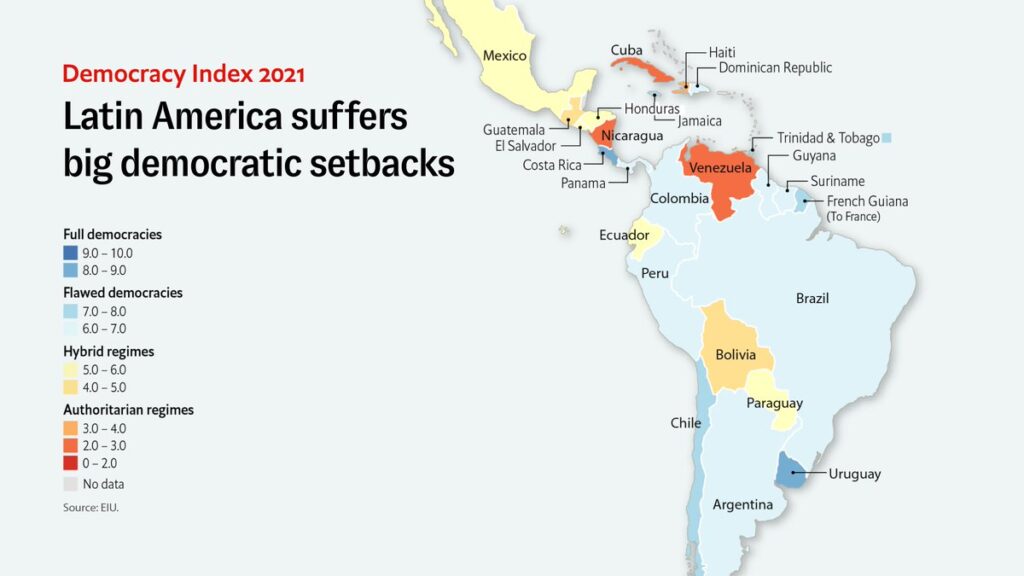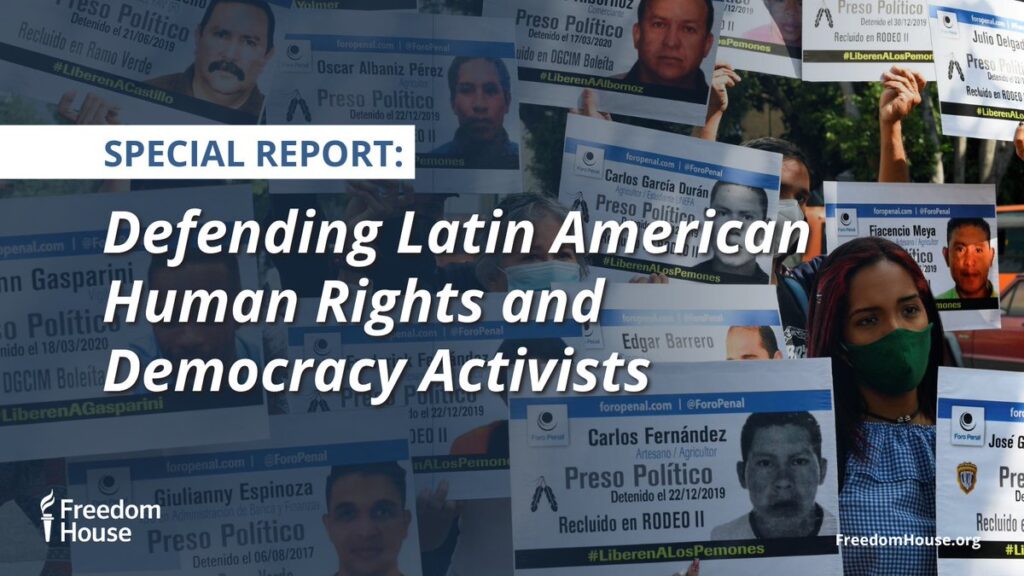 The democratic, relatively prosperous and largely pro-U.S. nature of Latin America and the Caribbean (LAC) has been a strategic asset for the United States for decades. Yet, the region today is at a tipping point, says Christopher Hernandez-Roy, Deputy Director and Senior Fellow at the CSIS Americas Program.
The democratic, relatively prosperous and largely pro-U.S. nature of Latin America and the Caribbean (LAC) has been a strategic asset for the United States for decades. Yet, the region today is at a tipping point, says Christopher Hernandez-Roy, Deputy Director and Senior Fellow at the CSIS Americas Program.
The presence of dictatorial regimes within the Western Hemisphere offers a springboard for extra-hemispheric authoritarians to expand their influence, co-opting, coercing, and manipulating other countries in the region to undermine their relations with the United States, often empowering anti-democratic forces in the process, he told the House Homeland Security Subcommittee on Counterterrorism, Law Enforcement, and Intelligence.
China’s engagement in the hemisphere is largely regime agnostic. Nevertheless, high levels of PRC engagement have been associated with worrying trends in recipient countries’ democratic health, Hernandez-Roy said, addressing a hearing on Countering Threats Posed by Nation-State Actors in Latin America to U.S. Homeland Security:
China often acts as a “lender of last resort,” bankrolling authoritarian governments when other sources of financing will not touch these. The China Development Bank and the Export-Import Bank of China offered in excess of USD $137 billion to the region in loans to various sectors, Venezuela being the single greatest recipient of Chinese loans at USD $60 billion. Furthermore, China’s public security initiatives have raised concerns after the PRC’s “safe cities” surveillance technology was associated with crackdowns on opposition parties in countries like Ecuador under the Correa government, to say nothing of China’s assistance with social control and digital monitoring in Venezuela.

Credit: EIU
The defense of democracy in the region has no political color or flag, argues Andrés Rugeles, a Visiting Fellow at Oxford University and a member of the Advisory Board of the Global South Unit at the London School of Economics. The political situation in certain countries cannot be understood under the notion of “building a narrative of authoritarianism,” he writes for El Pais:
Reports from the United Nations, the Inter-American Commission on Human Rights and Human Rights Watch, in addition to investigations by the International Criminal Court, speak volumes. The final blow was provided by presidents Gabriel Boric of Chile and Lacalle Pou of Uruguay at the last South American summit in Brazil, when they openly disputed this approach. From different political shores, they acted in unison and ratified an unquestionable reality.
The United States must double down on efforts to coordinate a response among like-minded democracies to counter instances of autocratization, Hernandez-Roy added. Such a “democratic playbook” should include measures such as helping to strengthen democratic institutions, early warning signs for civil society watchdogs to track, forums like the Summit for Democracies which allow international coordination to pressure dictatorships, as well as a reexamination of how U.S. sanctions policy can be more effectively deployed against dictators and would-be autocrats. RTWT








